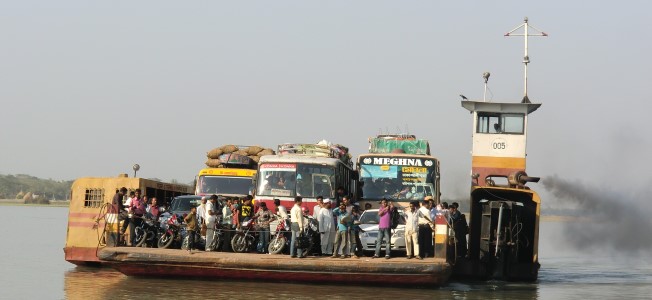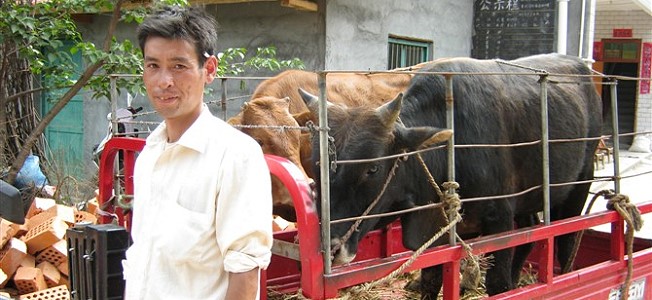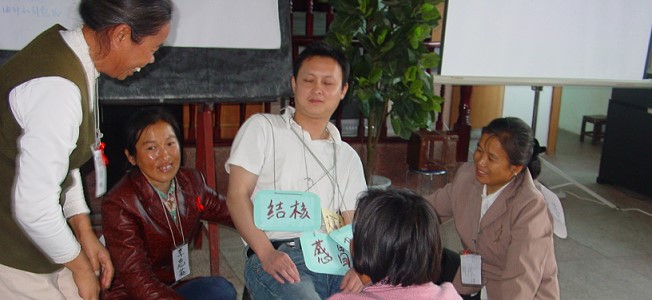Yongdeng is one of the poorest counties inLanzhou,Gansu, CEDAR has been partnering with Lanzhou City Christian Church to implement the Integrated Community Development Project (ICD) in four villages in Yongdeng since2007 in order to improve the livelihood of villagers and bring about a sustainable development. Partner promotes the application of organic fertilisers and high quality potato seeds among the farmers. These techniques enrich the soil quality and structure, increase the yield and are eco-friendly. The project staff also encourage villagers to change their methods of animal grazing, using pens to keep the sheep, and choosing sheep breeds that can adapt to the local climate, which will benefit both the environment and the economy.
Another aspect of the project is that through the formation of a women’s handcraft group, in which the women make use of their spare time after farming to produce small handcrafted products, the women could receive sufficient income without having to leave their homes. Hence, women’s significance in the family and the community are recognised. The project also works on promoting micro-credit programmes and assisting women to establishing legal cooperative organisations to support greater productivity gains.
Wei Zhan-xiu lives in Huo Jia Wan village, located in a poverty stricken area in a mountainous region. Throughout generations, villagers make their living by farming, relying on nature’s provisions to feed themselves and their families. She has two sons who are now grown up and have a family of their own. Her eldest son and daughter- in- law live and work away from home. She is left to live with her two young grandchildren. Although the couple work labouriously on their 20 mu of farm land, apart from basic food, they do not have any other source of income. Her husband Guo Shi-jun, who is over 60, has attempted to find employment elsewhere but his efforts were futile. Even though her grandchild has reached 2 years old now, they have still not paid back the loan they borrowed for the youngest son’s wedding banquet.
In 2010, Wei Zhan-xiu joined the handicraft programme in the village. Simply by looking at her handcrafted products, it is hard to believe that she is an amateur in using the sewing machine. In just four months of training, her technique has become superior by far amongst the women in the village! At one time during the women’s discussion, whilst exploring the art of handcrafting, she said: ‘I work slowly, but every bag I make, I won’t let any bag be remade.’ When her husband saw her enthusiasm towards her handicraft work, he willingly took up some domestic duties to ease her burden.
She even told CEDAR’s staff emotionally: ‘The help this project has provided our family is too great! This year, I already returned RMB400 that I borrowed from my son’s two aunties for his wedding! Now, my husband treats my sewing machine with particular care. When he hears that there is a slight problem with the sewing machine, he would rush over to repair, just like taking care of a child!’














